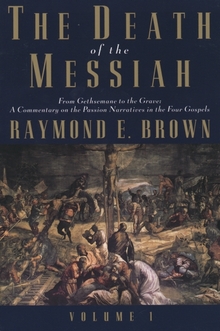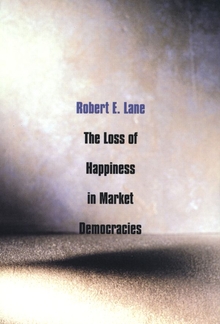Reconstructing America
WARNING
You are viewing an older version of the Yalebooks website. Please visit out new website with more updated information and a better user experience: https://www.yalebooks.com
The Symbol of America in Modern Thought
James W. Ceaser
With wit and passion, Ceaser traces the origins of the negative images of America, beginning with French scientists in the middle of the eighteenth century who viewed the country as a land of racial and physical degeneracy, and continuing with German thinkers from Hegel to Nietzsche, Spengler, and Heidegger, who viewed America as culturally inferior and a technological wasteland. Ceaser puts these critics of America in a dialogue with the country’s defenders—among them Alexander Hamilton, Alexis de Tocqueville, and Leo Strauss. By revealing the sources of the hostility to America, Ceaser undermines the position of its present attackers. He contends that only if we reassert political science rather than cultural and literary criticism as the proper intellectual discipline to direct politics will we free the real America from the symbolic America and vindicate its name.
"A rich articulation of an important problem. It carves an impressive niche for itself and will undoubtedly generate controversy."—Steven B. Smith, Yale University
"Reconstructing America combines polemic, intellectual history, and deft personal observation. It is engaging, provocative, and fun to read—political science written with an elegance that is rarely achieved."—James Morone, Brown University
"An important book...about the European image of the United States, showing the ways in which philosophers of both left and right have constructed a symbolic America often bearing little resemblance to the place itself. [This] wryly written...book is a timely corrective to loose thought in the academy and a candid appeal to reason."—John S. Gardner, Weekly Standard
"The most important lesson of Mr. Ceaser's important book [is that] in shaping public policy and in deciding political matters, we should be guided not by the images of America concocted by the philosophers but by our own political principles and practices. We should remember that buried beneath the 'symbolic America' foisted upon us by Hollywood—and indirectly supplied by such philosophers as Heidegger—there lies what Mr. Ceaser calls the 'real America.'"—Adam Wolfson, Wall Street Journal
"A splendid . . . important book."—Adam Wolfson, Wall Street Journal
"An engagingly written excursion through American and European political and intellectual history, this book touches on an important issue in contemporary American society: not only how other countries see America but the negative attitudes prevalent among certain groups, including academics here at home. . . . This book's positive appraisal, written in a style accessible to the lay reader, could be of interest to a wide readership."—Library Journal
"Europeans have been condescending toward America for upwards of two centuries, and they do not appear to be stopping now. In this challenging but rewarding book, Mr. Ceasar provides Americans with the tools to start fighting back."—Tevi Troy, Washington Times
"Ceaser's book is structured as a series of matches between the denunciators and the defenders. As a ringside commentator, Ceaser is unsurpassed. He provides concise, yet highly nuanced and immensely readable, summaries of the positions and strategies of the combatants. . . . By book's end, Ceaser has done more than bring to light the questionable genealogy of radical historicism and postmodernism; he has raised the question of their philosophic validity or invalidity."—Diana Schaub, Public Interest
"Reconstructing America: The Symbol of America in Modern Thought is a rich and eloquently stated attack on postmodernist nihilism."—Frank Day, Salem Press
"Reconstructing America is a fascinating compendium of misconceptions about America, a catalog of expressions of European anxiety and paranoia that may be followed down to the historical present. . . . Ceaser's knowledge of European political traditions is prodigious, and he puts it to excellent use. . . . Like all good histories, his is motivated by an impassioned concern for our precarious present. . . . Reconstructing America is a book with many virtues."—Richard Wolin, The New Republic
"Ceaser has done a service by tracing the roots of this movement, or impulse. He not only shows that the use of America as a negative symbol has a long and ugly history; he helps us understand the sources of this inclination to distort, and points us in the direction of the remedy."—John Danford, Anglican Theological Review
"This is a complex, demanding, but ultimately highly rewarding book. . . . This excellent book helps the reader to understand that the negativity inspired by America as symbol of modernity and Western rationality reflects an unwillingness to accept and come to terms with a world from which (in the worlds of Weber) the gods have retreated and in which harmony between incompatible desires and values is unattainable no matter how angry and resentful this many make those who pursue such harmonies and unities."—Paul Hollander, The Annals of the American Academy of Political and Social Science
"An impassioned defense of traditional political science as source of guidance for political life."—Nina C. Ayoub, Chronicle of Higher Education
"Gracefully written and provocative. . . . It is difficult to dispute [Caesar’s] contention that the United States is better served by thinkers who aim to understand its political machinery than by those who deride the nation as a vast, homogenizing Disneyland."—Solomon L. Wisenberg, Wilson Quarterly
"A spirited and elegant argument that very much needs to be made. Warmly recommended."—First Things
"James Ceaser's study of the creation and growth of 'symbolic America' is a sharp and clear light that pierces through the murky postmodern fog enveloping many discussions of American identity. . . . This is a book that should not be ignored: scholars in political science and rhetoric who confront it will learn from it . . . they will find it refreshing and engaging, written as it is with grace, clarity and wit. . . . Professor Ceaser has . . . presented the intellectual community with the gift of insight that grows from a capacious mind and a lifetime of erudition. Eloquently, wisely, and humanely he has focused our attention on the need to come to grips with the 'symbolic America' that fashioned for us and to 'rediscover the real America'"—James R. Andrews, Rhetoric & Public Affairs
"Ceaser's survey of European anti-Americanism is incisive, informative and urbane. It provides an unusual but highly illuminating angle on several of the most powerful tendencies of modern thought, all of which . . . share a theoretical 'anti-americanism' and foster a practical one. . . . Impressive."—Clifford Orwin, National Interest
"[A] splendid and perhaps groundbreaking book. . . . Americanists who are open to political philosophy and Straussians and other theorists who are concerned about American liberal democracy will find in James Ceaser a contemporary model of political and philosophical thoughtfulness."—Paul Seaton, Perspectives on Political Science
Publication Date: July 11, 2000








